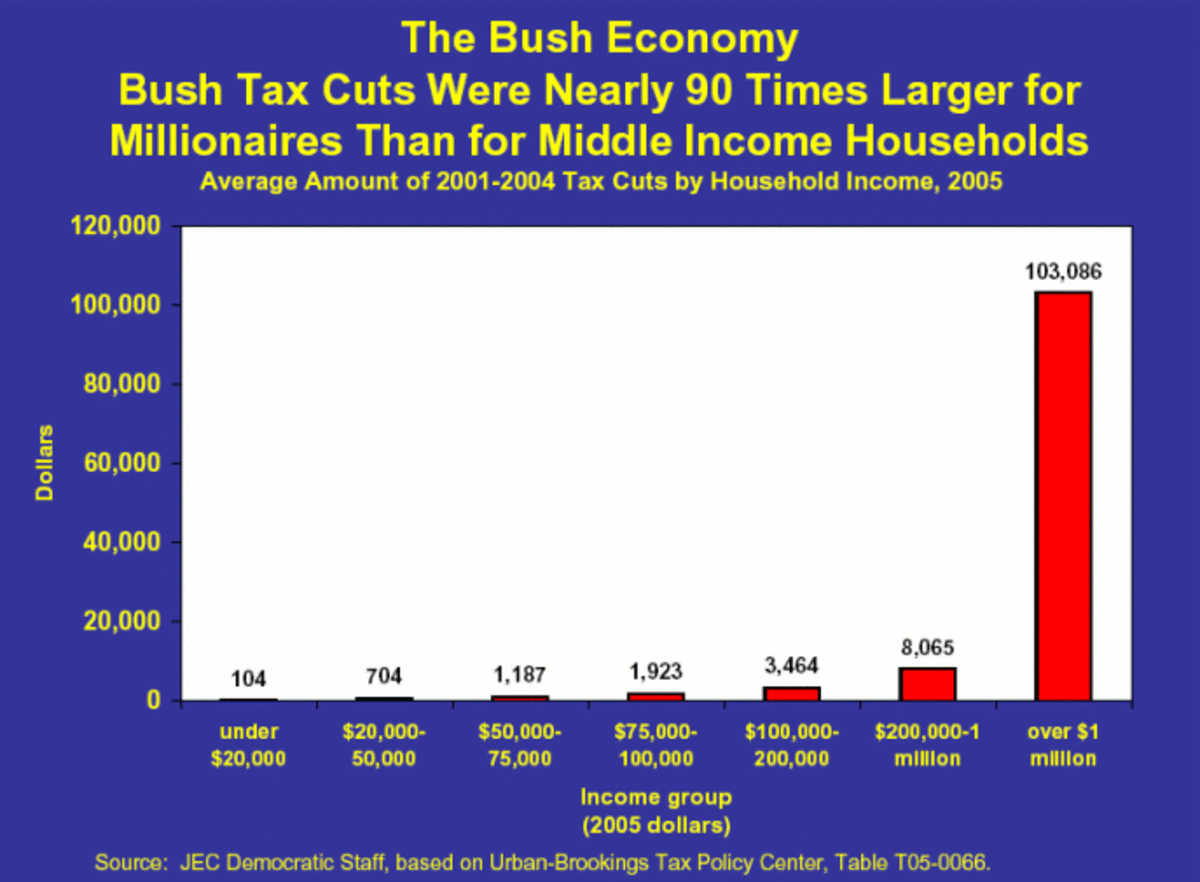The Myth of Individualism
An Argument for So-called Redistribution of Wealth
I always find it strange when people in the United States claim that they take care of themselves. I want to ask them if they have some crops growing and animals grazing in their backyards; various tools in their garages to manufacture and repair all of their needed goods and devices; and basic medical, dental, legal, and other professional training to perform vital services for themselves. The truth is that people in modern industrial societies live more in a state of mutual interdependence than anyone else in human history. We are a society of specialists and traders, and without the efforts of people who specialize in tasks that we are unable to perform, we will not survive for long. But in spite of this obvious fact, the myth of “rugged individualism” lives on in the United States.
My other favorite, closely related myth is the notion that all people, if they just worked hard enough, could be rich in the United States. The simple truth, as stated in the first paragraph, is that society could not function without people who are performing low and medium-wage jobs. Without people picking crops, cleaning buildings, disposing of trash, loading and unloading goods, and performing a host of other tasks, things would fall apart rather quickly. And the lifestyles of wealthy people, who are often given credit for “earning” their riches, would not be possible. So it is in the interest of the rich to ensure that society can sustain a population of workers that can perform these vitally important, although often disparaged, tasks.
This is not an argument for socialism. I recognize that governments are not up to the task of managing complex economies, and that personal incentives are necessary to get people to work hard. This is not an argument for social justice. After decades of hearing that term repeated again and again, I still don’t know what the hell it means. I know of no ways of calculating the definition of a “fair wage.” I don’t know what it means for an individual to pay his or her “fair share” of taxes. And this is definitely not an argument for the government issuing large amounts of “handouts.” Public works and job retraining programs are, in my mind, a much more productive and fair use of the government’s money – for people who truly have the capacity to work - than food stamps or welfare checks.
Instead, this is an appeal to simple pragmatism. The modern welfare state and other forms of government “wealth redistribution” did not develop to solve all of society’s social problems. They were developed in order to help maintain social order. When too much of a society’s wealth is concentrated in the hands of the rich, the situation will inevitably become unstable. And this goes beyond “class warfare” and the possibility that the poor will riot in the streets and take up arms against the powers that be. A capitalist economy that relies on continuous consumption cannot function properly when large numbers of people do not have the purchasing power to keep the industrial machine going. It is important to keep in mind that the financial crashes of the late 1920’s and of 2008 came after periods in which wealth was increasingly concentrated into the hands of the richest people. In both cases, people turned to risky borrowing in order to offset their lack of real purchasing power, and we all know (I hope) how that turned out.
In a society of mutual interdependence, it is in all of our interests to have at least some of the wealth “trickle down” to average Americans. Capitalism, when left to itself, seems to lead toward wealth concentration. (They key to making lots of money, after all, is already having lots of money.) So if the private sector is unable or unwilling to pay sufficient wages to many of the people who perform the vitally important tasks that keep the system operating, then it may be necessary for the government to engage in some form of so-called “wealth redistribution.” And while my argument for this is mostly practical, I believe that there is also a solid philosophic basis for actions that some will understandably see as unfair. In a society where it is difficult for people to claim that they truly earned anything on their own, there is something to be said for the notion that all people who are willing and able to work deserve to enjoy at least some of the fruits of our society’s collective labor.








